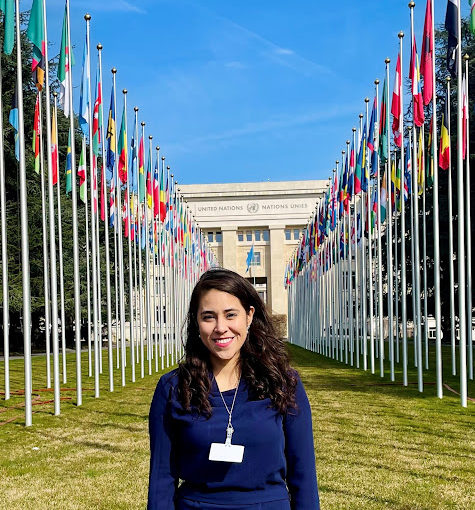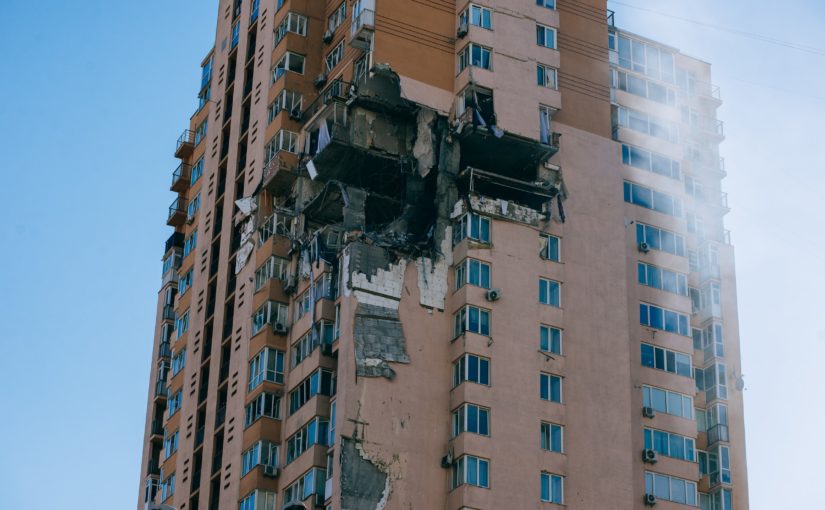I am a lawyer by training. I studied law after being inspired by the Model United Nations at my high school in Monterrey, Mexico. In Model UN I discovered the international stage where countries contribute to a joint aim: peace and development. I dreamed of understanding and influencing international systems in order to improve them.
For that reason, I pursued an unconventional path for a lawyer: a focus on social justice and development issues from the perspective of integral human development, which prioritizes human dignity. Thanks to my experience as a master of global affairs student at Notre Dame’s Keough School of Global Affairs, this dream has come true.
The Right to Development
I have been working with Prof. Diane Desierto and Ijeoma Oti, a Notre Dame law student, in the preparation of the United Nations’ Draft Convention of the Right to Development. The right to development demands human-centered policies and participatory development processes that enable adequate living standards and full enjoyment of human rights. This convention in particular provides a framework for states to pursue broader development beyond economic growth, as self-determined by their people.
In March 2021 we attended a meeting with the Expert Group of the Right to Development at the United Nations Office in Geneva, where the draft convention was finalized. We arrived on a sunny Sunday and walked through the city before our full schedule of meetings. Every time I visit a developed country and experience its quiet stability, walk on good-quality roads, and admire its apparently perfect infrastructure, I feel uncomfortable. I cannot stop thinking about the challenges I have seen in other less developed countries, including my native Mexico. My mind often grapples with the complexity behind the world’s inequalities.
And yet, as much as Geneva seemed close to perfect, I saw a sign on a city bus encouraging people to report gender-based violence—an indicator that violence and oppression are present even in developed countries. The sign also served as a reminder that the work I do, along with my classmates and professors, to overcome disparities is worthwhile. The next day, I saw how our utopian dream could become a reality.
Inviting Diverse Voices
We met with the Expert Group of the Right to Development in one of the buildings of the UN High Commissioner for Human Rights. It was fascinating to listen to discussions as experts knitted together the concepts and ideas proposed by member states, civil society, and UN agencies. What I enjoyed most was seeing the impact of integrating diverse voices and experiences in decision-making. Diverse backgrounds and regions were represented in the expert group, including proposals from indigenous people. This inclusiveness affirmed my commitment to becoming a development professional who always considers the needs and interests of historically underrepresented populations and brings their voices to decision-making spaces.
Promoting Human Dignity
The focus of my research and practice has been how development policies and programs uphold human dignity. Through my work with Prof. Desierto on the Convention to the Right to Development, I am learning how international treaties provide a framework for national policies and systems that foster human-centered development. Such development corrects the imbalances of power between elite institutions and the people, especially those living in the most vulnerable conditions.
But we all know that having an international treaty is not enough. It is important that human rights and integral human development are researched and taught beyond the fields of international development and law. What if professionals in business, social sciences, engineering, and design were taught the principles of human rights? What if professionals from diverse disciplines took responsibility to transform the systems that sustain inequalities and hinder the full development of all people?
On the same day we were in Geneva, Russia’s invasion of Ukraine began. I could see how this event posed new diplomatic, humanitarian, and development challenges to the international community. The ominous consequences of this situation—along with parallel situations in Afghanistan and Yemen, among other countries—filled our work with urgency, as the very right to development of millions is hindered every day.
For now, I am hopeful that next May, UN member states will vote in favor of this convention, which provides a new legal framework that urges governments to ensure adequate standards of living for all.
Angelina Soriano Nuncio is a master of global affairs student in the Keough School of Global Affairs at the University of Notre Dame. Originally from Mexico, she holds a bachelor’s degree in law with a concentration in leadership for social development.
Top photo: Master of global affairs student Angelina Soriano Nuncio outside the United Nations Office in Geneva, housed at the historic Palais des Nations.


